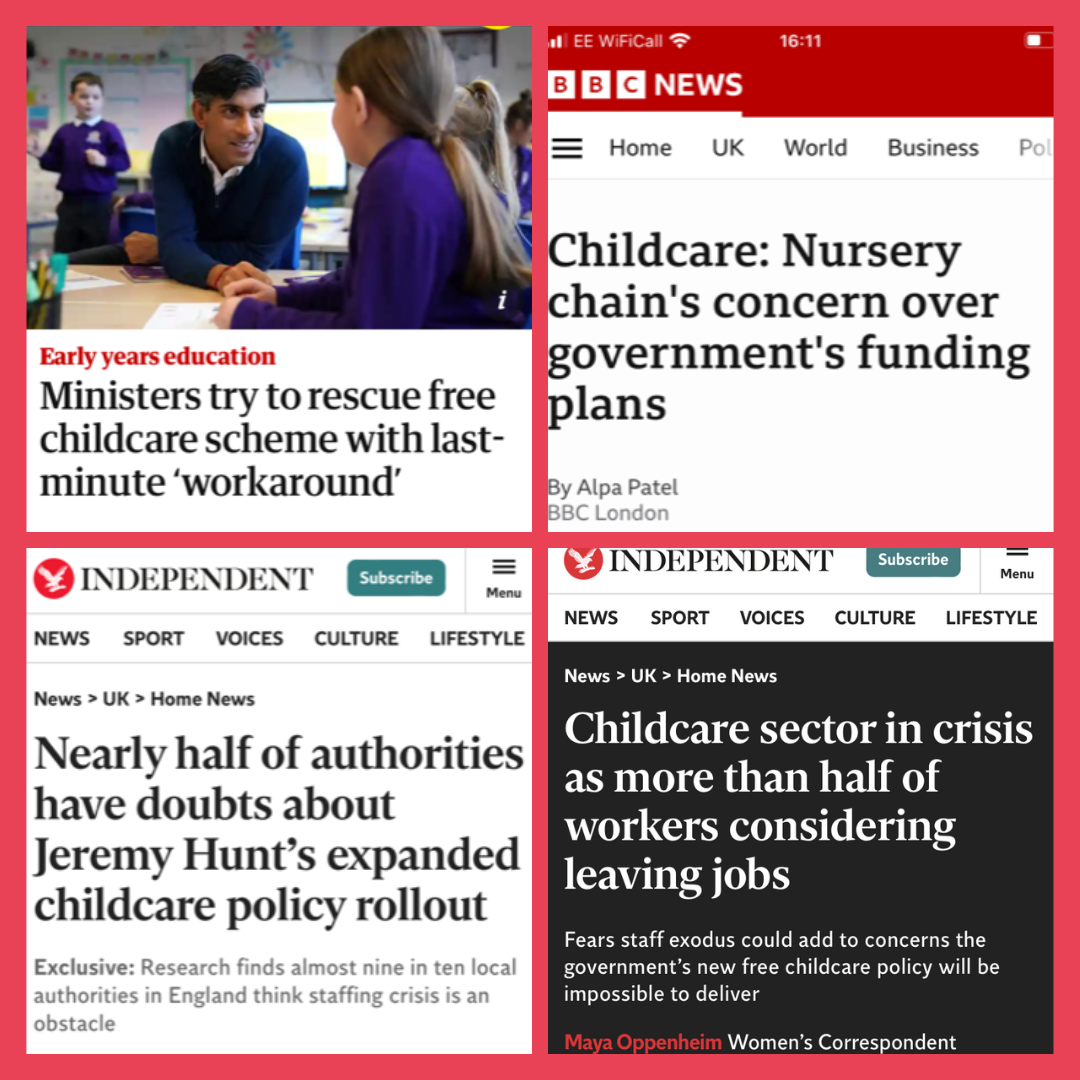You may keep reading about a “childcare crisis” but what exactly is the problem?
For many years, all three- and four-year-olds, as well as disadvantaged two-year-olds, in England have been able to access government-funded childcare and early education. But the money the government gives to pre-schools, childminders and nurseries to pay for these places has historically not covered the cost of delivering it. Over recent years, government funding has remained still far too low, meaning that early years providers are under even more financial pressure than before. Even worse, funding for the schemes has failed to keep up with the many costs that early years providers face – like staff wages, rents, and energy – meaning that the situation is getting worse.
The government says it’s investing more than ever into the early years which is true – but the number of young children in England accessing funded places has increased too. In fact, the Institute of Fiscal Studies estimates that, taking rising costs into account, providers have seen a 17% fall in funding for three- and four-year-olds over the past decade. Many in the sector are concerned the situation will only get worse when government funding is offered to eligible one- and two-year-olds from working families. All of this is leading to higher costs for families, fewer early years places and provider closures across the country.
But what does this mean for children with SEND?
A recent survey by SEND provider Dingley’s Promise – which received 550 responses – found that 95% of of early years settings have seen a rise in the number of children with SEND, with 79% noting this rise as ‘significant’. This, combined with a lack of SEND training and complicated funding processes, is leading to rising rates of exclusion in the sector: 27% of respondents reported that they had no space for children with SEND, while 85% of local authorities stated that they don’t have sufficient provision for children with SEND. They warn that the current situation is likely to worsen when the new early entitlement offers for one- and two-year-olds are introduced next year, with 57% of survey respondents reporting that they will not be able to offer spaces to children with SEND following the introduction of the new schemes.
In response, Neil Leitch, chief executive of the Early Years Alliance, said: “Every child, including those with additional needs or disabilities, should be able to easily access high-quality early education and support – but, sadly, as today’s research shows, it is becoming increasingly difficult for families to be able to do so.
“At the Alliance, we know that early educators are extremely committed to supporting children with SEND, but they are dealing with a system that is underfunded, overly complex and, frankly, entirely unfit for purpose. This has made it close to impossible for many to be able to do so sustainably, leaving many with no option but to limit the provision they are able to offer.”
We are seeing all of this play out locally. We are currently experiencing an increase in the number of families asking us for help. The families on our waitlist for an early years place are being supported by us through our Family Support & Outreach Service which provides specialist community-based Stay and Play sessions as well as social activities, training, family support, advice, referrals and more. If you need support please do get in touch with us.


Leave A Comment
You must be logged in to post a comment.